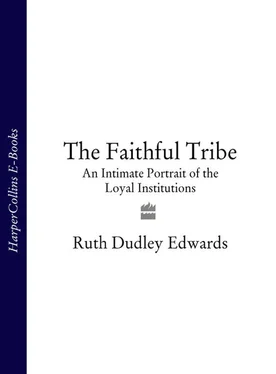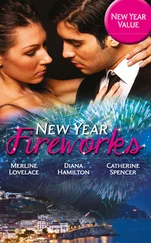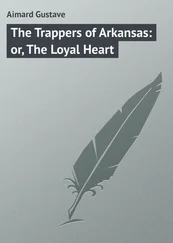You can’t become an RBP member without having spent two years in the Orange Order. The RBP has a reputation for being the least confrontational of loyal institutions, so I realize that what I saw in Aughnacloy was the most benign face of Orangeism. Of perhaps 90 lodges and bands, only three or four were even faintly intimidating. The exceptions were what are known as the ‘kick-the-pope’ * bands of young men from places like Portadown with earrings, shaven heads, vulgar and militaristic uniforms and a triumphalist swagger; in Scotland they would be on the terraces of Glasgow Rangers football club.
I’ve often vaguely wondered exactly what Orangemen do. ‘Sinn Féin think we talk politics and plot,’ said one RBP member. ‘In fact what we do is to have a monthly meeting in our hall to discuss trivial points about increasing the annual dues or repairing the roof; a few times a year we have a dinner. The main reason for going is just to meet your neighbours. And the parades are days out to look forward to.’
It was with a shock of recognition that I realized that, at bottom, the Orange Order is simply a Northern Irish Protestant means of male bonding. In England chaps have their clubs in which they obey arcane rules and organize social occasions. Some are Freemasons – cousins of Orangemen – and wear funny clothes and appear to be sinister because they conduct their proceedings in secret, but are in fact by and large a pretty harmless lot of men who just want an excuse to get out of the house. Irish Catholic men bond in pubs. †
Clogher Valley Protestants are hard-working, God-fearing, sober, frugal but warm people with a fierce pride in the land which many generations of their forefathers made so prosperous. Their RBP headquarters has so far escaped the fate of the almost 100 Orange halls attacked and seriously damaged in the past six years. It is a simple village hall with no creature comforts. The post-parade tea, at which I was made welcome both formally and informally, was – as one of them put it – ‘a country dinner’ of lots of meat and potatoes, and it was dry. But the Worshipful Master took me to the pub afterwards for Irish whiskey and chat with locals.
RBP 800 prided themselves on being well turned-out for the parade, in best suits, bowler hats, sash, mason’s apron and white gloves; the Murley Silver Band with whom they have marched for many years has a smart uniform. Like most of the bands, the Murley men and women are devoted to music-making rather than politics and like many of the other bands has extended its repertoire far beyond ‘The Sash’ and military music; many bands now play the music of that Catholic Derryman, Phil Coulter. *
What is missed in television coverage of these marches is the happy aspect. Old men walk along hand-in-hand with a toddler grandchild; cars follow individual lodges bearing proud but infirm elders; and every time I moved from my marching position beside the band and caught the eye of one of the men from my host lodge, I was awarded a wink or a large beam. Afterwards I said to one of them, ‘Why do you look so serious as you parade?’ He was puzzled. ‘It’s part of the discipline.’
There is a general belief that without the twenty-five years of assault from the IRA, the Orange Order would have almost withered away. The recognition that nationalist spokesmen are wiping the floor with unionists politically and on the media makes the parades a vital means of showing that the Protestants won’t go away. ‘What else have we got?’ asked one. Yet there is a new recognition of the necessity of taking on the nationalists at their own game. ‘We’ve been too stiff-necked and proud to explain ourselves,’ said one. ‘We’ve got to change.’ There is nothing they would like so much in the Clogher Valley as to watch on television the new leader of the Ulster Unionist Party wipe that smile off Gerry Adams’s face.
There were aspects of the day I had no room to put in that article. Such as that my host – who wanted me to know how bad it could be – insisted that we sit on the wet grass and listen to an evangelist who seemed to me to be completely deranged. Or that I was totally baffled that chaps speaking from the platform referred to each other as ‘Sir Knight’. I was baffled too that there was almost no reference to politics: I had a vague impression that all marches ended with a unionist politician going on about the Anglo-Irish Agreement. It was only afterwards that I discovered that the Black was concerned more with the spiritual than the political.
I didn’t mention that I discovered that it was rather fun singing hymns – this was the first of my many attempts at ‘O God, Our Help in Ages Past’ – nor did I refer to the ‘resolutions’ that were proposed at what I had just learned was called a ‘demonstration’. Here are the three listed in the leaflet I was given, which included this instruction about a forthcoming anniversary service: ‘Sir Knights to assemble on the Augher Road beside the Filling Station at 2.45 p.m.’
FIRST RESOLUTION
In pursuit of lasting peace in our land, we stress the need to contend earnestly for the Faith: We urge all Sir Knights to continue to live in harmony with their neighbours and to do all in their power to witness to the saving truths of the everlasting Gospel. We call upon everyone to embrace the Faith once delivered to the Saints and to engage whole-heartedly in the battle against the evil forces so rampant in today’s society.
SECOND RESOLUTION
We, the Members of the Imperial Grand Black Chapter of the British Commonwealth, send our loyal greetings to Her Majesty The Queen. The commemorations of the end of the Second World War enabled the British people to manifest their deep respect for Her Majesty, who has maintained the commitment and duty to Her people as displayed throughout the war by Her Father and Mother, and confirmed their conviction that the Monarchy remains the keystone of our Parliamentary Democracy.
The third one was more foxing. But then I had not yet learned how immediate for many religiously-minded Protestants is the Old Testament.
THIRD RESOLUTION
We applaud the good citizens of Northern Ireland who remained unnerved by the shocks and uncertainties since the cessation of military operations by terrorists.
We regret that little was done to prepare the population for the inevitable confusion similar to that experienced by ancient Israel when released from captivity in Egypt. Unlike them we must remain resolute and ready to take full advantage of favourable developments before the end of the year.
I didn’t mention either, as I didn’t want to hurt Henry’s feelings, that while I understood the attraction of parades, this seemed to me a pretty weird way of enjoying yourself, interesting though I’d found the experience. Nor that living in London where I virtually never hear the national anthem, I was moved by the fervour with which those attending the service sang it at the end. Nor that I greatly enjoyed the warmth of the welcome given in the Orange Hall to a female southern Irish Catholic (albeit an atheist – which, of course, to them is worse) and was touched that the Worshipful Master thanked me formally for bothering to come. I appreciated everyone’s friendliness, liked the atmosphere in the pub and the warmth and the chat of the drinking bandsmen and women and lodge-members. And I was thrilled that RBP No. 800 was now informally my lodge. *
We’d had a very jolly Twelfth the previous day in Kesh. Despite the rise in sectarian bitterness after the events at Drumcree, there had been little to see except the parade and people enjoying themselves in the manner of rural Protestants: a sunny day, ice-cream, picnics, soft drinks, lots of stirring music and chatting to neighbours constituted for them a veritable heaven. My English companions, Gary and Paul, who’d come to a parade for the first time, had had a surprisingly good time; we’d been entertained for lunch at the Orange Hall where, as always, I was the only woman guest, and had a chat with Lord Brookeborough, grandson of a Northern Ireland prime minister and one of the few remaining members of the Ulster gentry still in the Orange Order. He had introduced us to an Orangeman in a wheelchair, an ex-member of the Royal Ulster Constabulary, whose legs had been blown off as he helped a Catholic, who was too drunk to walk properly, to get away from a place that was being evacuated. He was a cheerful man who said he had merely done his job, had no bitterness and was grateful to God for having spared him.
Читать дальше












